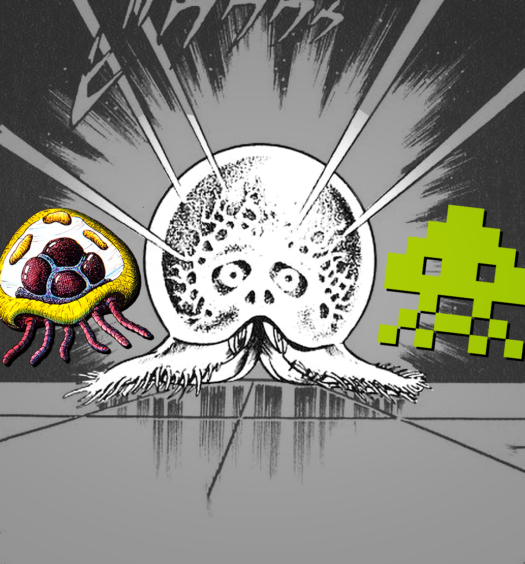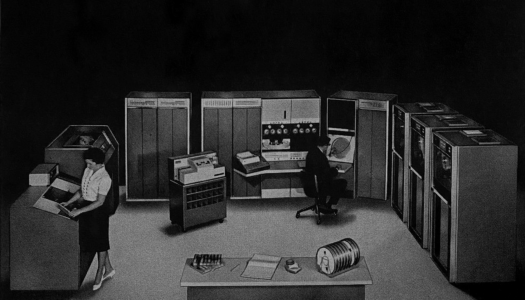How TV Tropes Changed The Meaning Of “Trope”
In the mid-2000s, a website called TV Tropes began to spread across the internet via word of mouth. Few of us knew what a “trope” was, but the way the website used the word was so intuitive that we all caught on quickly enough. What we never could’ve imagined is that the way TV Tropes used the word was actually completely incorrect. And yet, through years of collective misuse, this distorted version of the word became widely accepted as the correct form.
So what did the word “trope” originally mean?
Well, traditionally a trope was considered to be any use of a rhetorical figure of speech. For example, if I were to say that TV Tropes Will Ruin Your Life, that would be a form of exaggeration called hyperbole, which was classically considered a trope.
Another classical trope was metaphor, which is when you say one thing is actually another thing. For example, when XKCD said that TV Tropes is “like Rickrolling, but you’re trapped all day,” that was— well, that was a simile, which is a related trope. But, if the author had said that TV Tropes is “a Rickroll that traps you all day,” that would be a metaphor.
Or to give you a period appropriate example, when Christ referred to God as “the Father,” writers called this “the metaphor of fatherhood” or “the trope of fatherhood,” because literary critics frequently used both words interchangeably. All metaphors were tropes.
But the word “trope” fell into such disuse that, when it was later rediscovered by amateur critics on the internet, it was primed for misinterpretation. By 2004, the armchair analysts at Buffistas.org were regularly using “trope” to mean a plot device rather than a rhetorical device. Out of these discussions came the creation of TV Tropes, and the rest was history.
However, this wasn’t the first time a word changed in meaning through misuse. In fact, it’s more common than you might think. For example, the word “awful” originally meant “full of awe,” and “terrific” originally meant “full of terror.” Which might seem confusing, but this is just a natural part of the way language evolves.
Yet sometimes a word in the process of evolving can be stopped dead in its tracks — which, incidentally, is a trope called an idiom. But never mind that. In 1996, Alanis Morrisette released a single called “Ironic,” whose lyrics were filled with examples of what teenagers and twenty-somethings at the time understood ironic situations to be.
But when the song became a #1 hit, grammar snobs everywhere suddenly realized that an entire generation was using the word wrong. True irony isn’t just an outcome that wasn’t expected, but an outcome that is the exact opposite of what was expected. Like, poetically the opposite. So while rain on your wedding day isn’t ironic, writing a song called “Ironic” in which not a single lyrical example is ironic, is ironic. Still with me?
Long story short, the pushback worked, insomuch as it made people afraid to continue using the word at all. Go grammar snobs! But in the age of social media, it’s much more difficult to catch a straying word in time. Most recently, a decades-long battle over the word “literally” finally came to an end when dictionaries decided to include the secondary definition of “figuratively,” the word’s literal opposite.
And believe it or not, this is all the fault of irony. Because verbal irony is when we use a word to mean its opposite for dramatic effect. The problem is that when the ironic form of the word becomes more common than the original form, the word’s accepted meaning essentially flips. Which is probably what happened to “awful” and “terrific.” But here’s the kicker: Verbal irony is yet another rhetorical device. Which means that using “literally” figuratively to mean “figuratively” literally is a trope!
Or it was, before TV Tropes.
If you enjoyed this, please consider supporting the site on Patreon!
Sources
- Gizmodo: “Behind The Wiki: Meet TV Tropes Cofounder Fast Eddie” by Annalee Newitz (Feb 24, 2010)
- TED: “20 Words That Once Meant Something Very Different” by Anne Curzan (Jun 18, 2014)
- OED.com
SPECIAL THANKS: glmdgrielson (Date Horde)
MUSIC: “Deadly Roulette,” “Spy Glass,” “I Knew A Guy,” by Kevin MacLeod (incompetech.com).
Comments
Join the discussion on Youtube!















